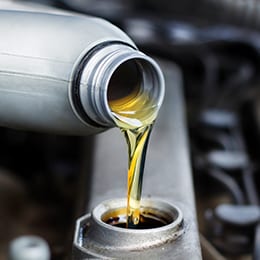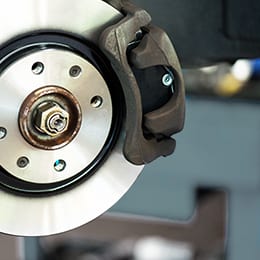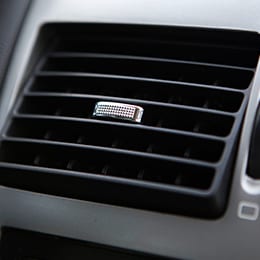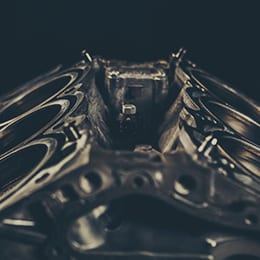CAR AC REPAIR IN PHOENIX, AZ
The heat in the Phoenix area is severe, making air conditioning essential to survival and when A/C issues arise, they need to be addressed immediately. If your vehicle has air conditioning troubles bring it into Sun Devil Auto for a full evaluation. Our ASE certified technicians will inspect, evaluate, and recharge or repair the damage to your vehicle’s A/C system.
Our automotive A/C experts can handle a complete range of air conditioning services and we guarantee all our work in writing. The repairs can be made quickly to keep your air conditioning cold throughout the hot Arizona summers.
See our Online Coupons for our Air Conditioning Service. Sun Devil Auto helps protect the environment through the recycling of refrigerant.
Auto AC Repair Near Me
For all auto A/C repairs and maintenance in Phoenix and its surrounding cities, visit Sun Devil Auto. With so many locations, there’s always one near you. Sun Devil Auto proudly serves the Phoenix valley metro with locations in Phoenix, Tempe, Scottsdale, Paradise Valley, Mesa, Gilbert, Chandler, Fountain Hills, Maricopa, Queen Creek, Cave Creek, Glendale, Sun Lakes, and Sun City West. Find a location today our ASE-Certified Technicians are prepared to restore your A/C’s function and get you back on the road.
A/C REPAIR SERVICE INCLUDES:
- Basic inspection
- Adjust belts and tighten hose connections where necessary
- Test for leaks electronically
- Add Freon*
- Basic A/C service includes service for 134A refrigerant system
*In order to fully charge the system, certain vehicles might require an evacuation and recharge of the entire system – at an additional cost. Parts extra.
Save on your repair! SEE ALL OUR OFFERS >
POPULAR REPAIR & MAINTENANCE SERVICES
How A Car’s AC System Works
A vehicle’s air conditioner works by taking the heat and moisture out of the air and recycling it into cooler air. The A/C compressor operates the high pressure side of the air conditioning system by compressing refrigerant into a high pressure state and turning it into a liquid form.
The refrigerant then travels through high pressure lines to the condenser. The condenser, similar to a radiator, introduces the liquid to fresh air from the outside of the vehicle to absorb the heat from the liquid. Next, the liquid flows into the expansion valve or orifice tube where it is restricted and turns to a gaseous state into the low-pressure side of the A/C system.
Next, it flows into the receiver dryer/accumulator to remove and collect any moisture or contaminants. The clean refrigerant gas travels through the tubing to the evaporator and is able to absorb heat from the air passing through the evaporator fins, producing cooler air. Fans blow the cooler air into the vehicle’s cabin through the vents. Refrigerant then travels back to the compressor to return to a high-pressure gaseous state to begin the process again. If you have an issue with your car’s air conditioning system, see our list of 7 common car ac problems (with solutions!).
What Goes Into a Car Air Conditioning Service
Air conditioning troubles on modern vehicles are often caused by either an airflow or operational issues. The first step is to evaluate the vehicle to determine which function is at fault. The evaluation of the air conditioning service begins with a complete visual inspection of all visible components in the A/C system. The technician will then connect the appropriate A/C service machine, based on the type of air conditioning system the vehicle is equipped with, then tests the pressure and measures the amount of refrigerant in the system and compares it to the manufacturers specifications. After this portion of the test is complete, the technician will be able to determine if the cause of the air conditioning troubles is related to a leak, lack of pressure, a restriction or blockage, or difficulty with the compressor.
The most common cause of air conditioning not working in a car is due to low levels of refrigerant. The air conditioning unit is a sealed system and will naturally lose less than .5 ounces per year. Any loss higher than .5 ounces is considered a leak; when refrigerant is low it must be determined what has caused refrigerant levels to drop. The second most common issue is a blockage or restriction somewhere in the system. The last most common cause of air conditioning issues is the compressor failing to engage or not building enough pressure for the system to function normally.
Car A/C Recharge Service
Once the vehicle has undergone the visual inspection and refrigerant levels have been measured and no major malfunctions have been identified, the technician will perform an evacuation and recharge process to test for any major evidence of leaks in the system. Once the entire system has been fully vacuumed with no leaks identified, the recharging procedure begins. The recharging process adds refrigerant back into the system along with a leak tracer dye to help identify any possible leaks in the future.
Frequently Asked Questions About AC Service
Q: Why is my car AC blowing hot air?
A: There are many reasons why the air conditioning system could be blowing warm or hot air. The first step is to determine whether there is a concern with the A/C and heater controls or an operational concern within the A/C system. If it’s a heater or an A/C control issue, it would require a diagnosis to determine the cause of failure. If it is A/C system related, our technicians will proceed with the standard air conditioning system inspection.
Q: How do you make car AC blow cold air?
A: How to make the A/C system in your car colder becomes a question of what type of problem the air conditioner is experiencing. A technician will need to determine whether it’s an airflow issue or a concern with the refrigerant level. Having a system low on refrigerant is the most common cause of reduced temperature output. If this is the case, a standard air conditioning system service will be performed. Most A/C systems today use a refrigerant that is a gas. Currently, there are two standard systems in use for cars produced after 1993, R134A and 1234YF.
Q: Does car AC use gas?
A: While the car does not utilize fuel directly to operate the air conditioning system, fuel is used to create energy to help operate the air conditioning system. The air conditioner draws energy from the alternator, powered by the engine, however fuel is needed to power the engine. The more energy that is needed for the engine to supply, the more fuel is used.
Q: How much does car AC repair cost?
A: Auto air conditioning repair costs can vary tremendously based on the cause of the issue. Parts and labor fees will vary based on whether there is a control, refrigerant, or airflow issue. At Sun Devil Auto, we perform a no charge Air Conditioning Inspection to help determine what kind of concern is the source of your air conditioning troubles.
Q: Why does my car AC smell?
A: Air conditioning systems that produce a foul odor are often related to an issue with the cabin air filter or the development of mold or mildew built up in the evaporator core located on the inside of the car’s dashboard. All Sun Devil Auto locations offer services to address these concerns.
Q: When do I recharge my car’s AC?
A: Since air conditioning systems can develop leaks at any time, there’s no specific time or mileage for an evacuation and recharge to be performed on your system. However, you shouldn’t wait until your vehicle begins showing signs of AC troubles. Have your vehicle’s air conditioning system inspected every Spring to ensure everything is functioning well before the heatwave rolls in.




